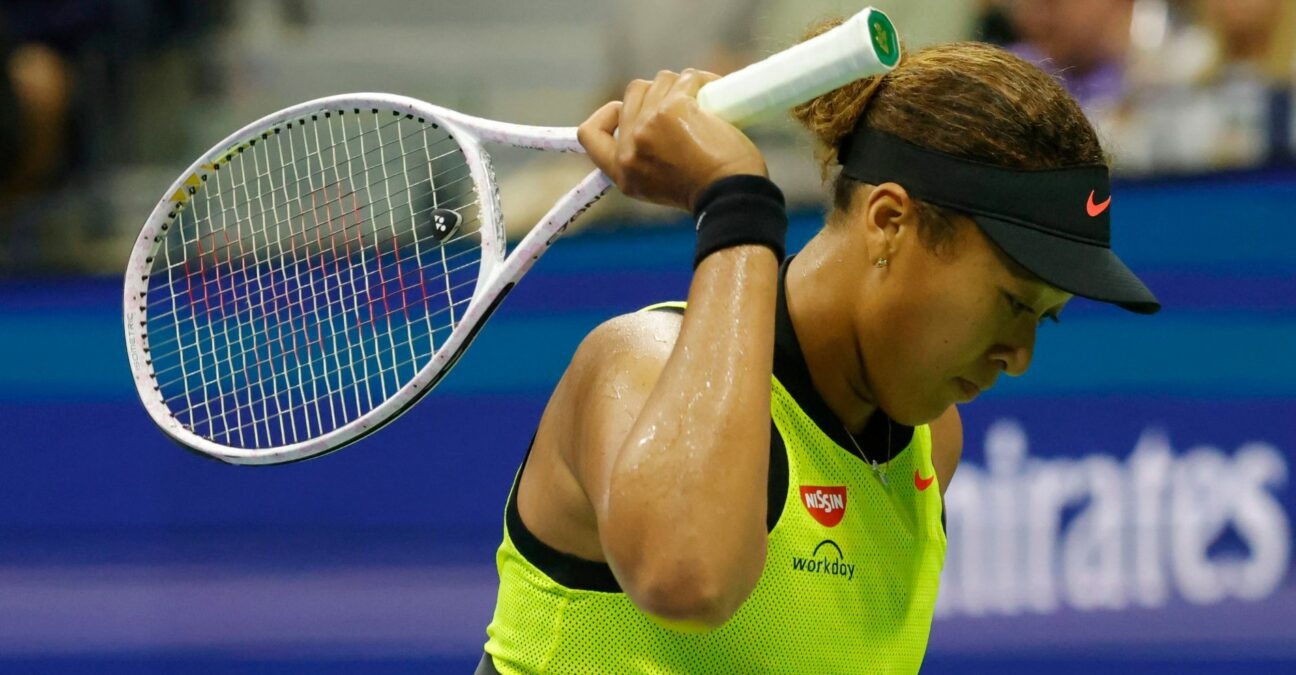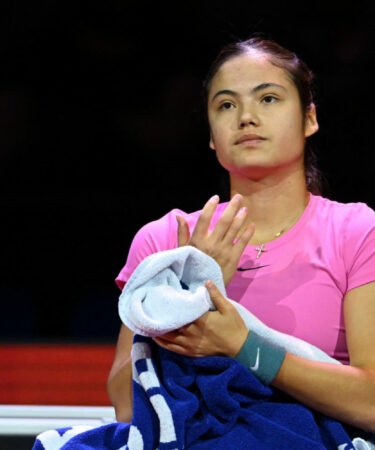Marion Bartoli: When it comes to pressure, Raducanu and Osaka are in totally different leagues
Emma Raducunu wasn’t bothered by the pressure during her run to the US Open title, while Naomi Osaka struggled under the weight of expectations as she lost in the third round. The pressure Osaka faces is a completely different animal, says former Wimbledon champion Marion Bartoli
 Naomi Osaka at the 2021 US Open © AI / REUTERS / PANORAMIC
Naomi Osaka at the 2021 US Open © AI / REUTERS / PANORAMIC
During Emma Raducanu’s enchanting run to the US Open title last week, the 18-year-old Brit demonstrated the proper way to deal with the bright lights of New York City as she ran roughshod through the draw, seemingly impervious to the pressure, and won all 20 sets she played through qualifying.
“For me I don’t feel absolutely any pressure,” she famously said after defeating Leylah Fernandez in the final to become the first qualifier to win a Grand Slam title. “I’m still only 18 years old. I’m just having a free swing at anything that comes my way. That’s how I faced every match here in the States. Yeah, it got me this trophy, so I don’t think I should change anything.”
It was indeed impressive how Raducanu embodied the go for broke mentality throughout her run, especially when her success is juxtaposed with the difficulties that Naomi Osaka endured at the US Open. The Japanese star fell short in her bid to defend her US Open title, losing in three sets to Leylah Fernandez in the third round, and broke down in tears in the press room after the loss.
It’s easy to recognise that Osaka would benefit from taking the fresh perspective of a teenager – if it were possible, she might not feel so weighed down by the pressure and expectations that have built up over the years, for various reasons.
Bartoli: The pressure Osaka faces is next level
But the reality is that Naomi Osaka has a lot on her plate, perhaps more than any other player on tour, and it’s not fair to judge her against anyone else at the moment, especially teenagers who haven’t been playing under the spotlight like Osaka has done for several years now.
“First of all, it’s one thing to come out and play when you have absolutely nothing to lose,” Marion Bartoli, 2013 Wimbledon champion, said during Tennis Majors’ latest episode of Match Points. “It’s another thing when you win four Grand Slams, earn $55 million in endorsements a year and you have to prove and feel like you deserve that every single time you play a tennis match.”
Bartoli says that it’s silly to think that Osaka can just pretend she’s an 18-year-old and play unencumbered tennis when she’s on court. Tennis players are never free from their off-court reality, as much as they try to be when they perform. It’s all a part of what they take on court.
“It’s a total different way to approach a tennis match,” Bartoli says. “And as much as it is easy to say ‘Oh just play tennis like you were when you were 16 or 17 and innocent’ – it’s impossible to be that way again for Naomi. It’s literally impossible. When you represent so much, when you are the face of so many brands, very prestigious brands, of course. When you step on the court the only thing that is going to make you happy is to win. And not even happy, she says it is more relief when she’s winning, because she’s not letting anybody down when she’s winning.”
Bartoli says it will be interesting to see how Raducanu and Fernandez handle the pressure if and when it comes their way.
“They are not paying you to lose first round, second round, third round, they are paying you because you win Grand Slams, so all of a sudden you feel like you play for yourself, you feel like you’re playing for everyone that gives you that money to be on the court and play tennis.”
Marion Bartoli on the pressures Naomi Osaka faces
“She has so much responsibility, that I don’t think Emma was having or Leylah was having those kinds of responsibilities coming into the US Open,” Bartoli said. “They were just normal players coming in to try and win a match. And this is why for me it’s going to be fascinating to see, if they keep on winning, they are going to have so many endorsements, so many more brands where it feels like you are owing them something, are they going to play the same way, are they going to behave the same way on the court and still have that same joy?
“When you have that sense of being part of a big circus and you have to deliver to that circus, and you have to deliver performance, because people are paying you to win, they are not paying you to lose first round, second round, third round, they are paying you because you win Grand Slams, so all of the sudden you don’t feel like you play for yourself, you feel like you’re playing for everyone that gives you that money to be on the court and play tennis.
“So for me it’s going to be really fascinating to see the evolution of those two girls.”
People in this post
More tennis news
“Shame” – Zverev regrets losing Rio quarter-final to Comesana from a “winning position”

Alexandre Muller defeats Cerundolo, reaches first ATP 500 semi-final

February 22, 2007: The day Wimbledon finally announced it would award equal prize money

Francisco Comesana stuns Zverev to reach Rio final four

Rio Open: Lucky Loser Ugo Carabelli makes semi-finals





